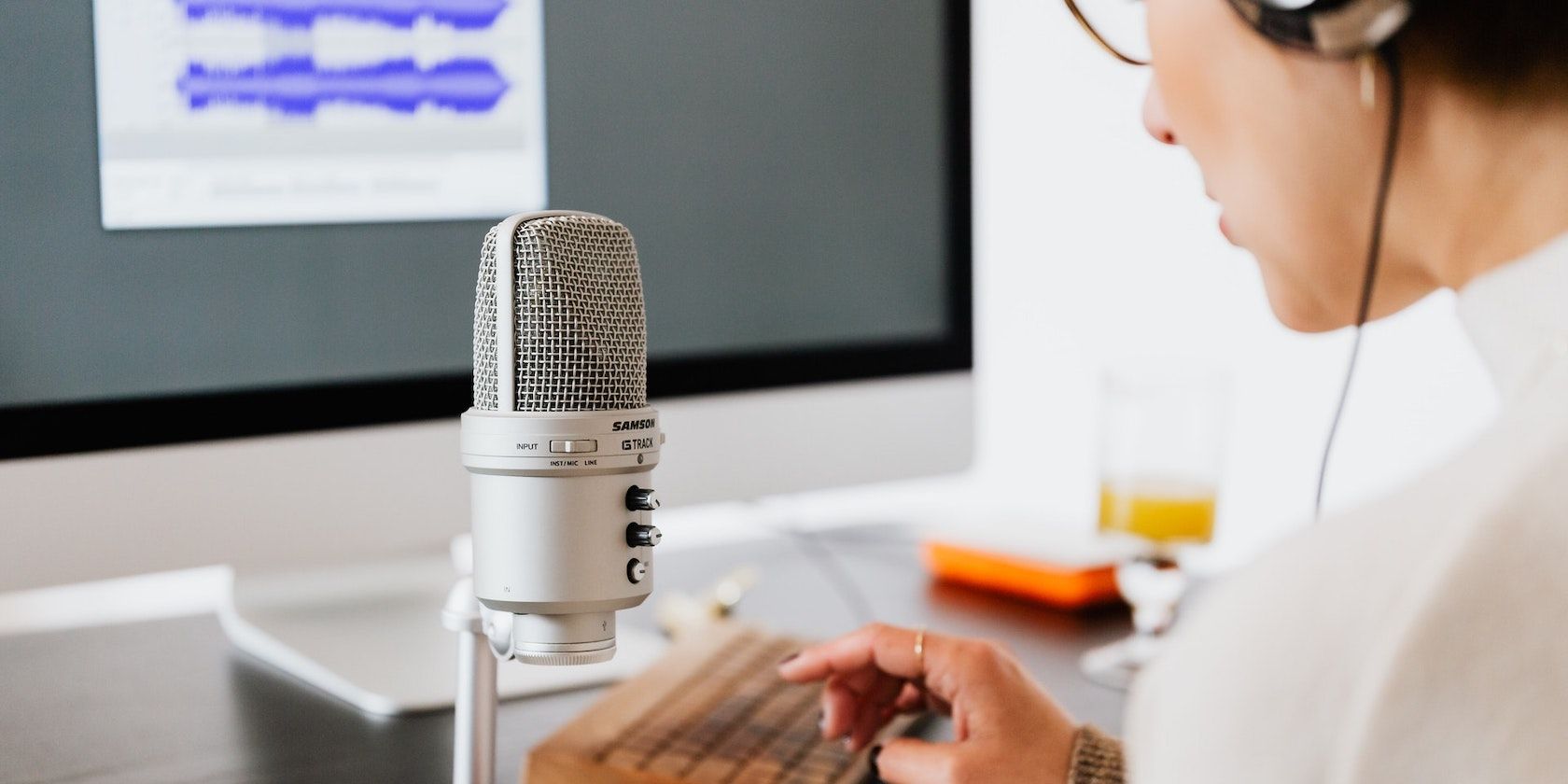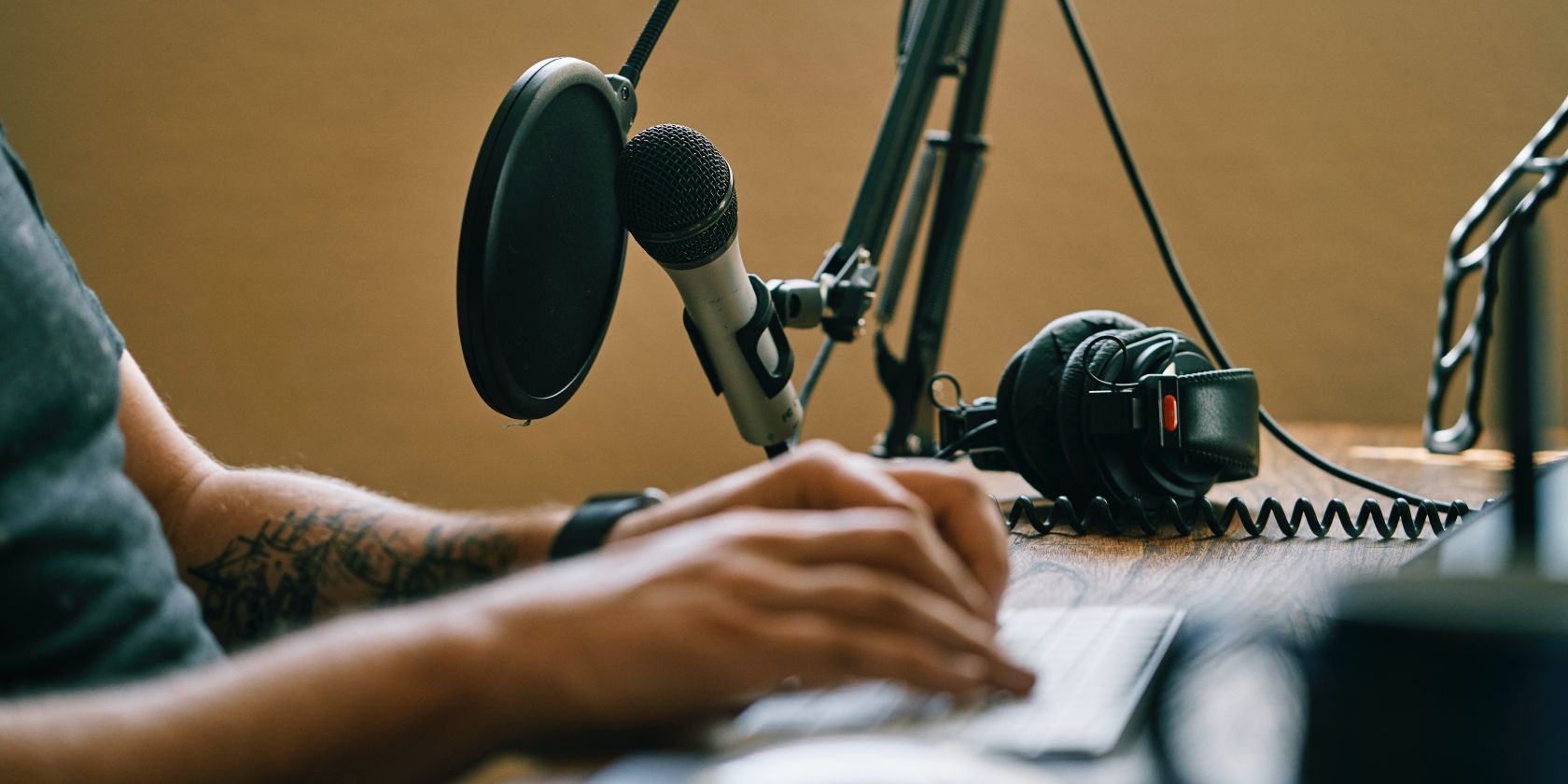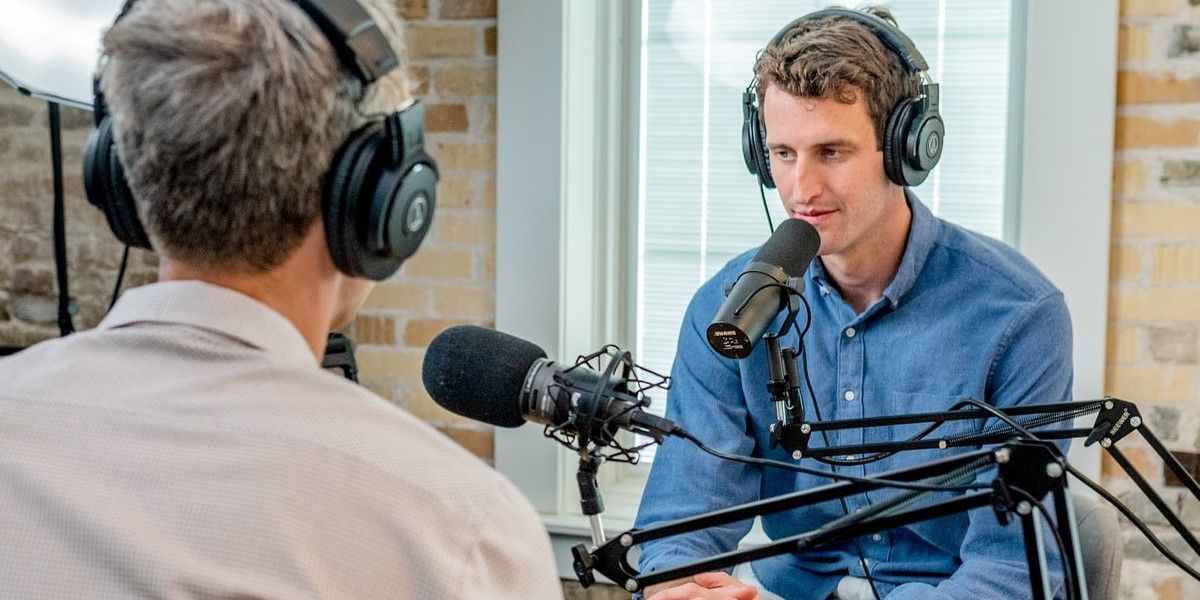8 Common Problems Beginner Podcasters Face and How to Tackle Them
Podcasting has become an increasingly popular medium throughout the 21st century. Many creators have used podcasts to express their opinions on topics that interest them, and they do so in a fun way. Meanwhile, streaming platforms like Spotify have spent a lot of money to better enable podcasting.
If you’ve decided to start your own podcast, you have a rewarding journey ahead if you stick with it long-term. But at the initial stage, you are likely to encounter many problems.
This article identifies common problems that beginner podcasters face and shows you how to address them.
1. Problems with your hardware
Computer hardware problems are one of the most common challenges for podcast beginners. And if you use an external microphone, you will eventually have problems with it not connecting properly.
Tweak and experiment with your recording software or platform settings to ensure your voice is being picked up through your external microphone. That’s pretty easy; For example, if you use Adobe Audition, you can make the necessary adjustments in the app’s settings.
2. Difficulty finding good ideas
Another challenge that novice podcasters face is coming up with good ideas and presenting them in a way that entertains their audience. With so much podcast content to discover on Spotify and Apple Podcasts, finding a unique angle can be time-consuming.
It becomes easier to come up with good ideas over time, and experimentation is the best way to tackle this problem. If you’re having trouble finding topics, consider using tools like AnswerThePublic to find out what people are searching for.
You can also try to interview a variety of people and allow them to tell their stories. Similarly, if you run a sports podcast, you can try to find key talking points from the weekend’s big games.
3. Nothing is recorded during your sessions
Picking an interesting idea is only part of the struggle as a beginner podcaster. Perhaps the biggest annoyance on this list is when you have an interesting topic to talk about but can’t hear anything when playing your audio.
Your audio fails to play for a number of reasons. Most of the time, the problem is hardware related. You may have forgotten to change the settings beforehand, and you may also have forgotten to turn on your microphone.
Another possibility is that you forgot to press the record button. The best way to tackle this problem is to make a checklist of everything that needs to be in order before recording the episode. In addition, you should also perform a microphone test.
4. Figure out how to upload the episode online
Once you’ve recorded your podcast episode, you can share it with the world. And that begs the next question: Where on earth do you upload it and how do you even do it?
If you’re serious about growing your podcast, you should be on Spotify and Apple Podcasts. In addition, you should also upload your episodes to Google Podcasts.
YouTube is also a popular place to upload podcasts. The platform allows you to upload entire episodes, and it’s also possible to create snippets – either in the form of shorter videos or via YouTube Shorts.
You can use a hosting service when uploading your podcast to Spotify, Google Podcasts and Apple Podcasts. Each platform has different rules for posting your work, so you’ll need to follow each platform’s specific instructions.
5. The sound is too low
Let’s say you got over the hurdle of recording your podcast and you can hear that you recorded some audio. However, you find that your audio is too quiet. Why did this happen and what can you do?
Your audio may be too low for a number of reasons. In some cases, you just didn’t speak loud enough. But other times, you may have sat too far from your microphone.
If you’ve already recorded your audio, you might be able to salvage a quiet recording. You can use editing software like Audacity to change the volume; If you do this, hopefully you don’t have too much background noise.
Alternatively, you may need to adjust your setup and re-record the podcast episode. However, try editing it first because you can save a lot of time.
6. Nobody is listening to your podcast
When you start your podcast, you might have an idea of what you want it to look like in a few years. And while you should aim for success if that’s what you want, you also have to keep in mind that the initial stages will likely be difficult and even daunting. For the first few months, you might only have a few people listening to your podcast episodes.
Patience is important when your audience is small. Even if you don’t have 100,000 listeners, you should still show up and treat all of your listeners equally. You should also make sure you talk about topics you enjoy; That way you won’t even think about the stats.
7. Loss of your files and folders
You will likely be working with multiple files and folders when assembling your podcast. And if you don’t organize them properly, you may find that you can’t keep track of everyone when editing your content.
Ideally, you should back up all your files and folders to an external hard drive. What’s more, you can also store them somewhere online – for example, on Google Drive. These tips and tricks will help you use Google Drive effectively.
You can also get organized by giving each podcast episode a unique folder instead of grouping everything into one.
8. Audio that doesn’t sound very clear
Similar to our point about quiet audio, one of the most common problems new podcasters face is recording audio that doesn’t sound very clear. Your voice might sound muffled, and you might also have a lot of background noise — especially if you recorded the episode in a busy place.
You should try to find a quiet place when recording your podcast episodes. For example, you can turn your closet into a studio. You could also tell everyone in the house about your plans and ask them to be quiet or wait for them to leave the house.
Make sure the hardware you’re recording with is also capable of producing crisp audio.
Podcasting isn’t easy, but it’s worth it if you stick with it
Starting a podcast might seem as easy as turning on a mic and talking, but it takes a lot of upfront planning. When you are in your early days, you are likely to encounter various issues that you might not have thought of before.
However, if you know the problems you may be facing, you can prevent them. And after reading this article, you should be better equipped to address any issues that may come your way.




